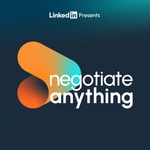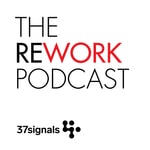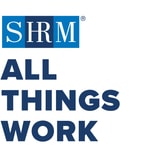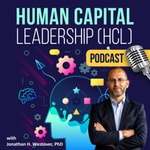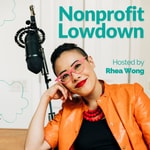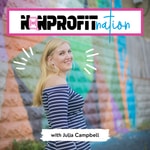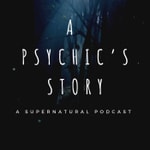Humanitarian Entrepreneur – Détails, épisodes et analyse
Détails du podcast
Informations techniques et générales issues du flux RSS du podcast.
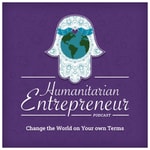
Humanitarian Entrepreneur
Humanitarian Entrepreneur
Fréquence : 1 épisode/8j. Total Éps: 56

Classements récents
Dernières positions dans les classements Apple Podcasts et Spotify.
Apple Podcasts
🇬🇧 Grande Bretagne - nonProfit
11/09/2024#94🇬🇧 Grande Bretagne - nonProfit
10/09/2024#94🇬🇧 Grande Bretagne - nonProfit
09/09/2024#78🇬🇧 Grande Bretagne - nonProfit
08/09/2024#71🇬🇧 Grande Bretagne - nonProfit
07/09/2024#64🇬🇧 Grande Bretagne - nonProfit
06/09/2024#52🇬🇧 Grande Bretagne - nonProfit
05/09/2024#38🇬🇧 Grande Bretagne - nonProfit
04/09/2024#22
Spotify
Aucun classement récent disponible
Liens partagés entre épisodes et podcasts
Liens présents dans les descriptions d'épisodes et autres podcasts les utilisant également.
See all- http://hivecast.fm/
222 partages
- https://humanitarian-entrepreneur.com/
47 partages
- https://humanitarian-entrepreneur.com
26 partages
Qualité et score du flux RSS
Évaluation technique de la qualité et de la structure du flux RSS.
See allScore global : 48%
Historique des publications
Répartition mensuelle des publications d'épisodes au fil des années.
Paul Kronenberg - Being Part of the Solution
jeudi 23 février 2023 • Durée 29:52
“What can we do to at least be part of a solution and not be getting stuck into the problem?” asks Paul Kronenberg. Paul is the co-founder and director of Braille Without Borders and Kanthari, an immersive training program that equips participants with everything they need to know to start and run effective, relevant social projects in their own communities. The Western World’s typical solution is to go into these other communities and try to change things with no real understanding or appreciation for the traditions and culture of the native people. Paul’s dream is to create a more ethical tomorrow by catalyzing others and giving them the tools they need to create sustainable, eco-friendly solutions to issues in their respective homelands.
When Western leaders go to other countries to make changes, they often just create more problems. This is because they are outsiders. They aren’t typically thinking about the needs, wants, or traditions of the native people when they propose their so-called ‘solutions.’ Instead, the solutions for any community should come from within its own members. They have more hands-on knowledge of local issues, in addition to having respect for and a full understanding of local traditions.
By choosing to be part of the solution, we can enact sustainable global and local change. Tune into today’s episode of Humanitarian Entrepreneur Podcast for a talk with special guest Paul Kronenberg to learn more about how Kanthari is putting the power for catalyzing change back into the hands of local community leaders.
Quotes
-
“What can we do to at least be part of a solution and not be getting stuck into the problem?” (13:46-13:52 | Paul)
-
“Basically from day one, once their organization is registered, they could get going and create the impact that they actually want to see.” (14:47-14:52 | Paul)
-
“Ethics and morals is a big difference. And I think that what is missing in the current educational systems around the world, I would say, is that ethics is not to be seen, not to be found. We get a lot of rules and regulations, and they're all top down. Somebody decides on a rule, regulation that everybody has to obey, but why is the rule a good rule? And what is right and what's wrong?” (15:15-15:40 | Paul)
-
“The only reason why we're in India is that it's central in the world where people can come. They collect all the skills and tools and the methodologies, and then they go back and they start their own programs in their own native places.” (17:25-17:38 | Paul)
-
“We're learning with and from each other. We don't have teachers and students, we have participants and catalysts.” (19:21-19:25 | Paul)
Connect with Paul Kronenberg:
Website: https://www.kanthari.org/
LinkedIn: https://www.linkedin.com/in/paul-kronenberg/
LinkedIn: https://www.linkedin.com/company/kanthari/
Facebook: https://www.facebook.com/kantharis
Instagram: https://www.instagram.com/kantharis/
Documentary: https://www.kanthari.org/documentary/
Admissions: https://www.kanthari.org/admissions/
To connect with Tiffany to solve problems or affect the kind of change you want: https://calendly.com/humanitarianentrepreneur/discovery-call
Website: https://humanitarian-entrepreneur.com
Podcast production and show notes provided by HiveCast.fm
Sarah Chickee - Le Club Mom Boss
jeudi 16 février 2023 • Durée 39:56
“You have to find out who you are to show up as your authentic self. And then once you find out who you are, stop letting everyone else around you tell you what to do,” shares Sarah Chickee, hardworking mompreneur and owner of Le Club Mom Boss. Her goal is to help mom and non-binary parent-owned businesses flourish while not having to choose between their business and their kids.
Many women and assigned-women at birth non-binary parents are still having to choose between a thriving career and being with their kids. It’s even more difficult for solopreneurs who are having to balance running a business with still maintaining the home and having time for their families. However, no one even blinks an eye at men who own businesses and have kids. Mompreneurs can benefit from community with other mompreneurs, because they connect on a deeper level and can understand each other's struggles.
No one should be having to choose between a career they are passionate about and their children, especially not nowadays. Unfortunately it is still a big issue, particularly for mothers and many non-binary parents. Tune into today’s episode of Humanitarian Entrepreneur Podcast for a talk with special guest Sarah Chickee to learn more about the work she is doing to highlight these mom-owned businesses, create visibility, and help fuel economic growth.
Quotes
- “Nobody should have to choose between their passionate career and their kids.” (7:19-7:23 | Sarah)
- “The amount of people that don't listen with their heart is astronomical, which is I want to say it's more like 90% of people don't listen with their heart, they listen to their brain. But when you talk to people and you connect, with even just one qualifier, one thing that connects you with someone else, you kind of feel seen. And then the more connections you find like a spider web everywhere, the more you really feel valued in what you do. Even if you're not a business owner, mom's connect with other moms whether they're a business owner. Business owners connect with other business owners, whether they're a mom or not, the struggles are similar. There's always something you can connect with someone.” (13:01-13:40 | Sarah)
- “You have to find out who you are to show up as your authentic self. And then once you find out who you are, stop letting everyone else around you tell you what to do.” (20:48-20:58 | Sarah)
- “If you're fake, you're not going to get the customers that you need.” (21:50-21:53 | Sarah)
Connect with Sarah Chicken:
Instagram: instagram.com/LeClubMomBoss
Instagram: instagram.com/Leschocolatsdechickee
Facebook: facebook.com/leclubmomboss
LinkedIn: linkedin.com/sarahchickee
Website: www.leclubmomboss.ca
To connect with Tiffany to solve problems or affect the kind of change you want: https://calendly.com/humanitarianentrepreneur/discovery-call
Website: https://humanitarian-entrepreneur.com
Rebecca Youssef - Sustainable Art
Épisode 46
jeudi 17 novembre 2022 • Durée 22:01
When was the last time you put a paintbrush on a canvas? There’s something so therapeutic about creating something from nothing. The trouble is many artists might not realize their phthalo green acrylic paints aren’t quite as “green” as they originally thought.
My guest today is Rebecca Youssef. Rebecca is a mixed-media artist and native California cultivator of trees. Her work has found a home in the space where art and environmentalism collide in her reforestation efforts in the Santa Monica Mountains where she lives and forms her art and her business.
In this episode, you’ll hear about:
- How sustainable art is possible
- Rebecca’s introduction to sustainable art during the COVID-19 lockdowns
- How art and environmentalism are related
- Why trees are a huge environmental justice issue
- And much more!
Thanks again for listening to the Humanitarian Entrepreneur podcast! Together, we’ll change the world on our own terms one planted acorn at a time. If you found this episode helpful or know someone that might want to try exploring their creativity in a more sustainable way, please share this episode with them.
Enjoy my conversation with Rebecca!
In This Episode:
[1:17] – We’re introduced to Rebecca Youssef and learn what drew her to the sustainability movement.
[2:45] – What is sustainable art?
[4:04] – Rebecca talks about her collection of sustainable artworks and her time during the COVID-19 lockdowns.
[6:15] – Learning the traditional practice of paper making.
[7:12] – Was Rebecca an artist before her move to the sustainable movement?
[8:42] – This is how art and environmentalism are related, according to Rebecca.
[10:10] – The one thing a person can do to make a significant impact on climate change.
[11:47] – Recebba educates us on what we’re missing about the wildfires in California.
[13:52] – We learn how to be the most productive when planting trees in our local area.
[16:15] – What does Rebecca have in the art show pipeline in the near future?
[17:17] – Rebecca gives her advice to those aspiring artists looking to be more eco-friendly.
[20:26] – We hear about Rebecca’s proposal for a Virtual Acorn Festival.
[21:11] – Tiffany concludes the conversation.
Resources:
To connect with Tiffany to solve problems or affect the kind of change you want:
calendly.com/humanitarianentrepreneur
Website:
https://humanitarian-entrepreneur.com
Connect with Rebecca:
Website: www.rebeccayoussef.com
IG: @rebecca.youssef_studio
Twitter: @RebeccaYoussef5
FB: @rebeccayoussefstudio
Catherine Mattice - Creating a Positive Company Culture
Épisode 45
jeudi 10 novembre 2022 • Durée 24:31
Many of us have experienced bullying in the workplace, but not many of us have had the tools or resources to address it.
My guest today is Catherine Mattice, MA, SPHR, SHRM-SCP, who is a subject-matter expert in workplace bullying. Catherine has been researching, publishing, and speaking since 2005 after a personal experience dealing with a bully at work. Not only did she feel like a target, but as the Director of Human Resources, she saw firsthand how that behavior can damage an organization.
In this episode, we’ll hear about:
- Bullying in the workplace
- The three buckets of bullying
- Why abrasive leaders are the way they are
- How to define a positive company culture
- The importance of reinforcing inclusive behavior
- And much more!
Thanks again for listening to the Humanitarian Entrepreneur podcast! Together, we’ll challenge the status quo of toxic work environments and learn what it takes to bring real positive change to our company cultures. If you found this episode helpful or know someone that might be experiencing abrasive leadership, please share this episode with them. And don’t forget to leave a review wherever you’re listening. Every step—no matter how little—helps.
Enjoy my conversation with Catherine!
In This Episode:
[1:21] – We’re introduced to Catherine Mattice and learn about her experiences with bullying in the workplace.
[2:45] – Catherine defines bullying and the three buckets of bullying behavior.
[4:33] – We hear about why abrasive leaders are the way they are, according to Catherine.
[6:49] – Ironically, some bullying may come from a place of caring. Here’s what that means.
[7:55] – How do people come to realize they are abrasive leaders? Catherine shares her thoughts.
[10:39] – Examining decades of experiences that led to a person’s abrasive leadership style can take a long time to unwind. We learn what Catherine recommends in situations like this.
[12:57] – Positive company culture needs to be defined by the organization.
[15:06] – Catherine shares her own definition of positive company culture and how she helps companies find their own.
[18:15] – The importance of encouraging and reinforcing inclusive behavior on teams.
[19:49] – This is how we can mitigate our own bias, in Catherine’s opinion.
[21:56] – What advice would Catherine give to those experiencing toxicity in the workplace?
[23:30] – Tiffany concludes the conversation with Catherine.
Resources:
To connect with Tiffany to solve problems or affect the kind of change you want:
calendly.com/humanitarianentrepreneur
Website:
https://humanitarian-entrepreneur.com
Connect with Catherine:
Website: https://civilitypartners.com
Keynotes: https://www.civilitypartners.com/keynotes/
LinkedIn: https://www.linkedin.com/in/catherinemattice/
@catmattice
Dana Miranda - Healthy Rich
Épisode 44
jeudi 3 novembre 2022 • Durée 26:32
Have you ever taken a look at the financial education space and noticed a lack of diversity among those educators and the traditional wealth services they provide?
My guest today is Dana Miranda. Dana is an entrepreneur and a certified educator in personal finance (CEPF). She founded Dana Media to diversify voices in personal financial media. Through the agency’s flagship website, Healthy Rich, she works with emerging creators to share stories that illuminate the diversity of our relationships with work and money.
In this episode, we’ll learn about:
- How Dana sought to diversify the financial education space.
- The intersection of money and culture.
- The importance of having conversations about money earlier.
- Building wealth in nontraditional ways.
- The value of freelancing and entrepreneurship.
- The biggest challenges facing new freelancers and entrepreneurs.
- And much more!
Thanks again for listening to the Humanitarian Entrepreneur podcast! Together, we’ll question everything about the traditional space of financial education and learn how we can live the life we want on our own terms. If you liked this episode, please leave a review wherever you’re listening and share it with those who may be considering taking their first step in entrepreneurship.
Enjoy my conversation with Dana!
In This Episode:
[1:35] – We’re introduced to Dana Miranda and learn what called her to personal finance education.
[4:34] – Dana explains how money plays into our culture.
[7:13] – This is what Dana believes is missing in the conversation about money.
[8:20] – The dangers of teaching money in the context of budget culture, according to Dana.
[10:28] – How Dana believes we should think about money differently.
[13:27] – What is the answer to building wealth in a nontraditional way? Dana shares her thoughts.
[15:00] – Dana discusses her experimental plans for her IRA and what she could do with that money instead.
[18:21] – We hear about the value of exploring nontraditional paths like freelancing to make money.
[22:19] – These are the biggest challenges that Dana sees people facing when they start the path of freelancing and entrepreneurship.
[25:17] – Tiffany wraps up the conversation.
Resources:
To connect with Tiffany to solve problems or affect the kind of change you want:
calendly.com/humanitarianentrepreneur
Website:
https://humanitarian-entrepreneur.com
Connect with Dana:
Website: healthyrich.co
@healthyrichteam
Bethany Nicole - If We Are Given The Dream, We Are Given The Tools
Épisode 43
jeudi 27 octobre 2022 • Durée 25:26
The Beatles said it best. “You’re going to carry that weight a long time.” Many of us go through life packing on our emotional burdens and spiritual weights without ever taking a moment to think about how all that weight slows us down.
But how do we overcome and release those burdens so that we can truly start to truly love ourselves again?
My guest today is Bethany Nicole. Bethany is an author based in Los Angeles, freelance writer, and relationship expert. Her organization, Apologies I Never Got, is a book, brand, and service, that focuses on helping release the burdens of the past in order to create relationship foundations that lead to long-lasting connections, communications, and of course, love.
In this episode, we’ll hear about:
- How Bethany brought spiritual aspects to social services
- Bethany’s path to overcoming self-doubt
- Learning how to love, trust, and forgive yourself
- The three components of an apology
- Finding and loving our authentic selves
- And much more!
Thanks again for listening to the Humanitarian Entrepreneur podcast! Be sure to leave a review wherever you are listening and share this episode with those who may be ready to release the spiritual weights they’ve been carrying.
Enjoy my conversation with Bethany!
In This Episode:
[1:25] – We’re introduced to Bethany Nicole and learn about her story.
[3:08] – So often people don’t know the end results and have trouble taking the first step. Here’s how Bethany took her first step.
[5:02] – How to overcome the limiting beliefs that stop us from reaching our dreams.
[7:53] – If we are called to something, there’s a deeper reason why. Here’s what that means to Bethany.
[9:10] – Bethany defines self-love and self-worth.
[10:35] – This is how Bethany believes we need to go about forgiving ourselves.
[13:37] – Bethany gives her words of wisdom for how we can learn to trust ourselves.
[15:22] – The importance of following through on the promises we make to ourselves.
[18:00] – We learn how we can have an authentic relationship with our own self.
[21:19] – What happens when there is guilt and shame when sharing our truths with others?
[24:49] – Tiffany concludes the conversation with Bethany.
Resources:
To connect with Tiffany to solve problems or affect the kind of change you want:
calendly.com/humanitarianentrepreneur
Website:
https://humanitarian-entrepreneur.com
Connect with Bethany:
Website: www.bethanynicole.com
@apologiesinevergot
@bethanynicoleauthor
Michelle J. Howe - Empath Evolution
Épisode 42
jeudi 20 octobre 2022 • Durée 24:05
Are you feeling burnt out?
We might look calm on the outside. We may appear to have our lives completely in order. But inside, our lights may be dimming.
My guest today is Michelle J. Howe. Michelle is the founder and president of Empath Evolution and offers a unique process that allows empathic leaders to feel more empowered, achieve success on the inside, and improve the quality of their life. Michelle’s mission is to empower those who are passionate about love and positive impact in the world and who push their positions to uplift others yet end their days mentally drained, emotionally exhausted, or empty on the inside.
She speaks, teaches, and guides her clients to prioritize feelings, release emotional pain, and embrace their journey to self.
In this episode, we’ll learn:
- What it means to be an empath
- How empaths are like radio antennas
- Why many empaths may believe there is something wrong with them
- The value of quieting your mind
- The importance of taking care of your whole self
- And much more!
Thanks again for listening to the Humanitarian Entrepreneur podcast! If someone you know is looking or feeling emotionally spent, please share this episode with them. It can really help.
Enjoy my conversation with Michelle!
In This Episode:
[1:36] – We’re introduced to our guest, Michelle J. Howe.
[3:54] – Michelle knew early on that she couldn’t let people see her as being sensitive.
[5:55] – Emotions can be intimidating. Here’s how Michelle has helped people reach emotional places.
[7:22] – Michelle explains how she connects with her clients on a soul-to-soul level.
[10:00] – Michelle believes that a lot of empaths think there is something wrong with them. Here’s why.
[11:22] – Michelle’s story, in summary.
[13:46] – We hear how empaths can learn more about themselves.
[16:33] – It’s a necessity to manage yourself when the light starts getting dim. Michelle explains what that means.
[19:30] – Even if our lives are falling apart on the outside, we can still be ok on the inside.
[20:05] – How to release the deep wounds that hold us back in the world, according to Michelle.
[22:22] – We need to realize that we’re souls in a human body. Here’s why that’s important.
[23:15] – Tiffany concludes the conversation.
Resources:
To connect with Tiffany to solve problems or affect the kind of change you want:
calendly.com/humanitarianentrepreneur
Website:
https://humanitarian-entrepreneur.com
Connect with Michelle:
Website: https://empathevolution.com/
Facebook: https://www.facebook.com/empath.evolution/
Personal Facebook: https://www.facebook.com/michellejhowe777
LinkedIn: https://www.linkedin.com/in/michellejhowe/
Instagram: https://www.instagram.com/empath_evolution/
Masterclass 2022: https://empathevolution.com/masterclass2022/
Jamie Meyer - Challenge The Status Quo
Épisode 41
jeudi 13 octobre 2022 • Durée 29:53
Do you feel like you’re stuck in a rut or like your workday is moving slower and slower as you go through email after email?
Time moves differently when we’re simply punching the clock compared to when we’re truly passionate about the work we’re doing. All of that untapped potential simply remains bottled up leaving us feeling unmotivated and uninspired.
My guest today is Jamie Meyer. Jamie has an urge to mine the gold of everyone and everything. As an entrepreneur, founder, traveling CEO, and coach, Jamie Meyer is driven to change the world, challenge what is normal, and encourage the unexpected. Recalibrating and transforming companies and the people within them, Jamie designs alternatives for education and writes about different ways to consider and create our reality.
In this episode, we’ll hear about:
- Why businesses have become littered with unfulfilled opportunities
- Going from $30 per hour to $300 per hour
- The right way to talk about your business
- The reason actively listening is critical for building stronger client relationships
- The flow of time, and the value of pausing and taking moments
- And much more!
Thanks again for listening to the Humanitarian Entrepreneur podcast! If there’s someone you know that is full of untapped potential, please share this episode with them. Together, we’ll challenge the status quo and get paid the money we’re looking to make.
Enjoy my conversation with Jamie!
In This Episode:
[2:12] – We’re introduced to Jamie Meyer and learn about her story.
[4:29] – Jamie explains why she believes businesses have become littered with unfulfilled opportunities and how she gets those companies to realize their wasted potential.
[7:14] – This is Jamie’s favorite piece of advice ever.
[10:12] – Reputation is only how you carry yourself. Here’s what that means.
[12:05] – We learn how Jamie navigated her mindset at the start of her business.
[14:35] – Jamie tried all of the traditional marketing techniques, but that’s never where she got most of her clients.
[17:00] – Jamie went from a local company to a global company overnight without the funding that is normally expected.
[18:06] – We hear about the biggest things business owners tend to forget.
[20:55] – Actively listening is a skill Jamie had to cultivate early on.
[22:26] – Does Jamie believe we can balance our passion to change the world with a thriving business?
[25:00] – This is when time stands still and when time flies during the workday, according to Jamie.
[28:28] – Tiffany concludes the conversation
Resources:
To connect with Tiffany to solve problems or affect the kind of change you want:
calendly.com/humanitarianentrepreneur
Website:
https://humanitarian-entrepreneur.com
Connect with Jamie:
Website: www.jamiemeyerenterprises.com
Nine Carat: www.ninecarat.net
Facebook: https://www.facebook.com/jamiemeyer.ent
Instagram: https://www.instagram.com/jamiemeyer.ent/
LinkedIn: www.linkedin.com/in/jamiemeyer-ent
Tumblr: https://www.tumblr.com/blog/jamiemeyer-ent
Twitter: https://twitter.com/jamiemeyer_ent
Rachel Waterman – Grants Management Made Easy
Épisode 40
jeudi 6 octobre 2022 • Durée 26:42
Do you feel overqualified and underpaid in your career?
If so, you’re not alone. Lots of aspiring professionals in the nonprofit space get stuck in an endless cycle of punching the clock for a fraction of what they know they’re worth. The challenge isn’t so much in recognizing that the cycle must be broken, the challenge is having the courage to break it in the first place.
My guest today is the Honorable Rachel Waterman. Rachel is a thinker, published author, award-winning researcher, professional artist, and mother of two with over 25 years of community development and grant writing experience creating a business on her own terms since 2008.
This episode covers:
- What it means to be a humanitarian entrepreneur
- The difference between being a freelancer with a backpack and an entrepreneur with a business
- The value of networking
- The importance of pricing and screening clients
- How to reduce burnout in the grant-writing profession
- And much more!
Thanks again for listening to the Humanitarian Entrepreneur podcast! Don’t forget to share this episode with the humanitarian entrepreneurs you know who might feel they are overqualified and underpaid in their own professions. Together, we’ll change the world on our own terms while getting paid what we’re worth and avoiding burnout along the way.
Enjoy my conversation with Rachel!
In This Episode:
[1:25] – We’re introduced to today’s guest, the Honorable Rachel Waterman, and we’re taken back to when it all started for Rachel in 2008.
[4:30] – This is why Rachel was excited to come on the Humanitarian Entrepreneur podcast.
[5:29] – Rachel explains her first consulting job.
[7:26] – There’s a leap between being a freelancer with a backpack and being an entrepreneur with a business. Here’s what that means.
[8:50] – How Rachel navigated imposter syndrome early on.
[11:06] – Partnerships and making connections is important in work and in life.
[13:39] – What does Rachel know now about pricing and screening clients that she wished she knew earlier in her career?
[16:16] – The problem that pro bono services can create for the grant consulting industry, according to Rachel.
[18:14] – Rachel continues to learn about pricing every time she gets burned.
[20:54] – Grant writers are the people that help people that help people, but the burnout is so high.
[23:52] – Rachel reveals the most critical element to grant writing.
Resources:
To connect with Tiffany to solve problems or affect the kind of change you want:
calendly.com/humanitarianentrepreneur
Website:
https://humanitarian-entrepreneur.com
Connect with Rachel:
You can learn more about Global Development Solutions at https://www.gdsgrants.com/ and if you want to connect with Rachel directly, reach out to her on LinkedIn at https://www.linkedin.com/in/rachelwaterman/
https://www.linkedin.com/company/global-development-solutions-grants/?viewAsMember=true
https://www.grantmanagementmadeeasy.com
Use code: HUMANITARIAN for 10% off an annual subscription
Additional articles:
Eloise Allexia – Integrating Monasticism in Everyday Life
Épisode 39
jeudi 29 septembre 2022 • Durée 23:34
Wouldn’t it be easier for someone to just “give you the answer” and tell you what your purpose was in life?
Easier, maybe.
More meaningful? Probably not.
Finding our purpose for why we’re here requires walking the path and experiencing the journey, to a degree. After all, crossing the finish line means little if we didn’t take any of the steps to get there ourselves.
My guest today is Eloise Skinner. Eloise is an entrepreneur, author, and existential therapist. She is the founder of One Typical Day (an education technology start-up) and The Purpose Workshop (a social impact consultancy).
In this episode, we’ll hear about:
- Eloise’s experience with experimental monasticism
- Her journey to existential therapy
- Why “introducing depth” is better than simply “giving the answers”
- The pressures of niching down
- And much more!
Thanks again for listening to the Humanitarian Entrepreneur podcast! If you found this episode inspiring and meaningful, be sure to leave us a review wherever you’re listening. And don’t forget to share this episode with someone that you know who might be feeling like they haven’t found their purpose in life. It can really help.
I hope you enjoy my conversation with Eloise!
In This Episode:
[1:16] – We’re introduced to today’s guest, Eloise Skinner and learn about her unique journey to finding a career in existential therapy.
[3:44] – Eloise discusses what experimental monasticism is really like.
[6:14] – The movement to existential therapy.
[7:40] – Who were the people Eloise saw coming into a monastic life?
[9:38] – This is how Eloise’s experiences tie into her businesses, The Purpose Workshop and One Typical Day.
[12:35] – The difference between “introducing the depth” versus “giving the answers”, according to Eloise.
[15:00] – Throughout her 20s, Eloise wasn’t sure what her path was meant to be. This is how she found her footing.
[16:32] – Eloise addresses the pressures of niching down.
[18:50] – “Finding the themes” helped Eloise find purpose and meaning in her professional and personal life.
[20:06] – Eloise reveals some details about her new book that combines existentialism and well-being.
[22:52] – Tiffany concludes the conversation.
Resources:
To connect with Tiffany to solve problems or affect the kind of change you want:
calendly.com/humanitarianentrepreneur
Website:
https://humanitarian-entrepreneur.com
Connect with Eloise:
@eloiseallexia
London Speaker Bureau:
https://londonspeakerbureau.com/speaker-profile/eloise-skinner/
Website:
